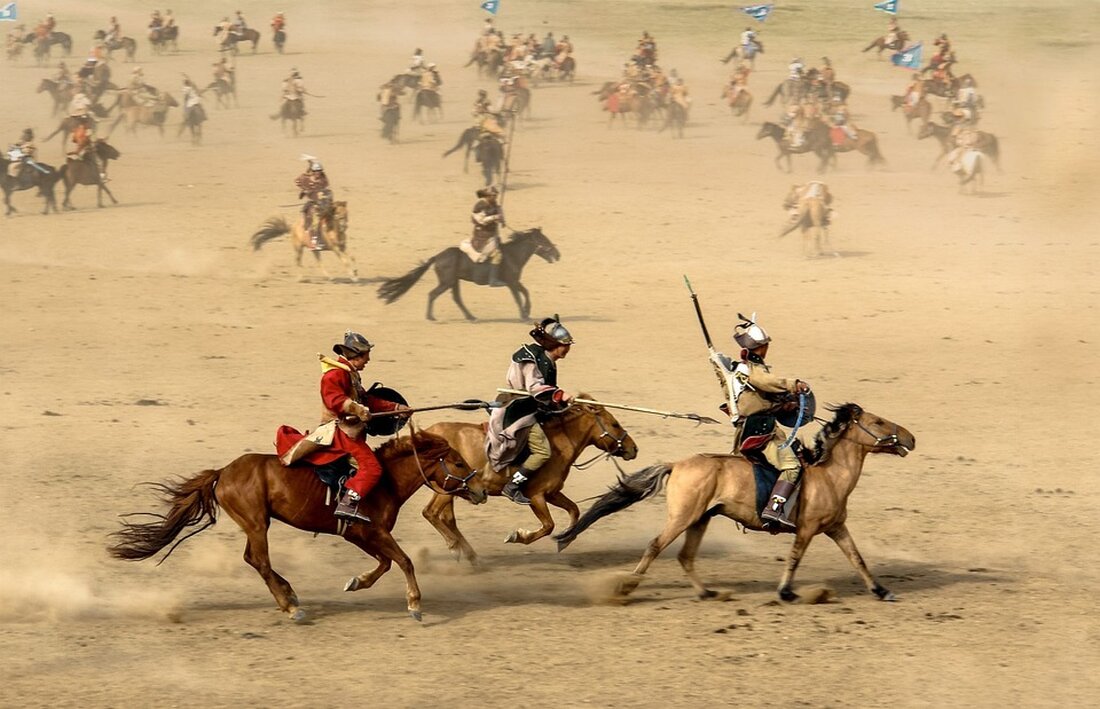Assad was brutal, despite being less tactless than Saddam Hussein
In an article we shed light on the brutal rule of Bashar al-Assad. Despite its inconspicuous appearance, it represents a bloody history and the fight against the civilian population in Syria.

Assad was brutal, despite being less tactless than Saddam Hussein
Narrow shoulders, a limp handshake and a gentle lisp - these are the most impressive memories of my meeting with Bashar al-Assad. It was 2007, and the uprising against U.S. troops in Iraq was raging right next door. Deposed Iraqi leader Saddam Hussein, a comrade in secular Baathism like Assad, had been executed just six months earlier. But Syria's then-leader, who had succeeded his father Hafez seven years earlier, represented a stable contrast to the chaos engulfing neighboring Iraq.
Encounter with Assad
Assad received us without a large entourage, folding his long body into a chair at the head of the room. At no time were we physically searched. His security team showed absolute composure by remaining largely invisible. The assumption was that the dreaded Syrian security forces had been keeping an eye on us from the moment we landed in Damascus, while they were also probably searching our rooms and listening in on us.
Rise and fall
Little did I know then that this tall, thin man in a suit would one day be the Arab Spring's fiercest opponent. He survived in places where other regional power brokers failed, unleashing a brutal repression that plunged his country into civil war for 13 years, only to see his dynastic rule collapse within days.
Luxury in secret
I was traveling with a group of more than a dozen correspondents and editors from National Public Radio. A fleet of black limousines, escorted by motorcycles, took us from a luxurious Four Seasons hotel in Damascus to a hilltop villa overlooking the city. During one hour-long discussion, which took place almost entirely in English, Assad firmly rejected various accusations against his regime. No, Syria has no role in one Series of attacks on critics played in neighboring Lebanon. He denied the existence of a pipeline of jihadists traveling through Syria to Iraq. He responded to questions about the lack of press freedom in Syria and the unity party system with classic “what about” arguments.
Torture and repression
Assad was nowhere near as ostentatious as his colleague Saddam, whose monstrous palaces in Iraq were covered in tawdry gold. But Syrians now exploring Assad's abandoned properties have shown that the former ophthalmologist-the-president certainly had his own taste for luxury. A video showed Dozens of luxury cars, which were in the president's garage, including a red Ferrari F50, a Lamborghini, a Rolls Royce and a Bentley.
Meanwhile, his regime's reputation for absolute brutality was cemented long before, during the civil war that lasted 14 bloody years. Basat al reeh. Dulab. Falaqa. These Arabic terms for torture methods were repeated to me by Syrians who were imprisoned during the repressive measures against government opponents that erupted across the country in 2011. We soon became familiar with them.
Personal fates
“We suffered constant torture,” said Tariq, an opposition activist from the port city of Latakia, who told me about the 40 days he spent in solitary confinement. Dulab, Tariq explained in exile in Turkey, involved forcing the victim's head into a car tire and beating him. Basat al reeh was when a prisoner was tied to a board and beaten. Falaqa involved beating a victim's feet.
In opposition-controlled Idlib province in 2012, I interviewed a dentist who was arrested for secretly providing medical aid to injured protesters. He said he suffered beatings, near-drownings in buckets of toilet water and electric shocks to his genitals during a 45-day stay in a cell built for 60 people but crammed with 130 prisoners. Eventually, Assad's troops, supported by Iran, Russia and the Lebanese Hezbollah, managed to regain control of large parts of Syria.
Collapse and resistance
Prisons remained full of inmates and torture continued. Then, in late November, as the saying goes, "There are decades when nothing happens; and then there are weeks when decades happen." A rebel offensive brought Assad's regime to collapse in less than two weeks. The crowd of desperate Syrians for signs of missing relatives in front of the Saydnaya military prison illustrates the cruelty of the dynastic Assad dictatorship.
Cynicism and hypocrisy
During the Assad dynasty's 53 years in power, Damascus played an incredibly cynical game of regional politics. This fiercely secular government, which bombed its own city of Hama in 1982 to put down a Muslim Brotherhood uprising, later funneled Sunni jihadists into Iraq to fight the U.S. occupation. Some of these militants eventually returned to fight the Syrian government. Meanwhile, Syria's closest allies also included Iran - a theocracy - and Hezbollah, Lebanon's Shiite "church". For decades, Damascus served as a patron for Kurdish PKK separatists in a long-running anti-government insurgency in neighboring Turkey, while denying full civil rights to many Syrian-born Kurds.
Syrian officials continually condemned Israel's occupation of the Palestinian territories while the Syrian army and secret police tortured ordinary people at checkpoints in Lebanon during a Syrian occupation that lasted nearly 30 years. These ideological contradictions were astonishing. They also served to project Syrian power far beyond the country's borders.
An unforgettable impression
The hypocrisy and cynicism displayed by Assad was a family affair. In an interview with CNN in 2009, the president's British-born wife, Asma, condemned allegations of human rights abuses by the Israeli military in Gaza and spoke about the responsibility of being a first lady. “What do you do in the position you hold?” she asked. “As a mother and as a human being, as I said, we must ensure that these atrocities stop.” But three years later, she proudly stood by her husband's side and ignored the atrocities committed by Syrian government forces during the civil war, which included the repeated bombing of hospitals.
A memory of a reporting trip to Damascus still haunts me today. In 2005, I went undercover, posing as a tourist visiting a nightclub on a hill overlooking the city. There, amid strobe lights and blaring dance music, I spoke to 14- and 15-year-old girls from neighboring, war-torn Iraq who worked as prostitutes. Some of the boys and girls who worked in this brothel were even younger.
The nightclub was located just a few miles from Assad's presidential palace. In a country ruthlessly controlled by the Syrian secret services, where any form of dissent was immediately crushed, it is impossible to imagine that the authorities were not informed about the existence of the club and the work of the children. It was hard to understand that the thin, lisping man I met could govern such a system, and yet Assad ruled as president for over 24 years. Smarter people than me have written about trivializing evil. Based on what I saw long ago during my hour-long audience with a dictator, Bashar al-Assad personified this.

 Suche
Suche
 Mein Konto
Mein Konto
